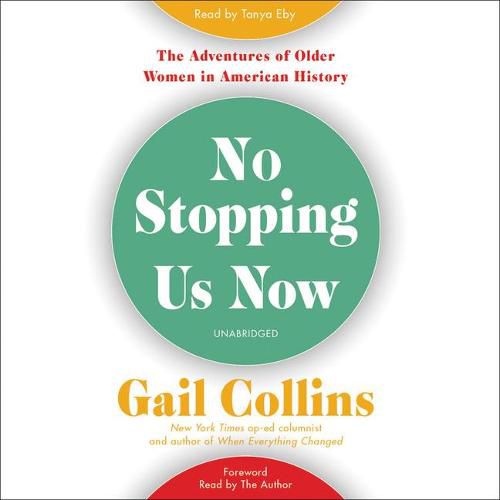Readings Newsletter
Become a Readings Member to make your shopping experience even easier.
Sign in or sign up for free!
You’re not far away from qualifying for FREE standard shipping within Australia
You’ve qualified for FREE standard shipping within Australia
The cart is loading…






The beloved New York Times columnist inspires women to embrace aging and look at it with a new sense of hope in this lively, fascinating, eye-opening look at women and aging in America (Parade Magazine).
You’re not getting older, you’re getting better, or so promised the famous 1970’s ad – for women’s hair dye. Americans have always had a complicated relationship with aging: embrace it, deny it, defer it – and women have been on the front lines of the battle, willingly or not.
In her lively social history of American women and aging, acclaimed New York Times columnist Gail Collins illustrates the ways in which age is an arbitrary concept that has swung back and forth over the centuries. From Plymouth Rock (when a woman was considered marriageable if civil and under fifty years of age ), to a few generations later, when they were quietly retired to elderdom once they had passed the optimum age for reproduction, to recent decades when freedom from striving in the workplace and caretaking at home is often celebrated, to the first female nominee for president, American attitudes towards age have been a moving target. Gail Collins gives women reason to expect the best of their golden years.
$9.00 standard shipping within Australia
FREE standard shipping within Australia for orders over $100.00
Express & International shipping calculated at checkout
The beloved New York Times columnist inspires women to embrace aging and look at it with a new sense of hope in this lively, fascinating, eye-opening look at women and aging in America (Parade Magazine).
You’re not getting older, you’re getting better, or so promised the famous 1970’s ad – for women’s hair dye. Americans have always had a complicated relationship with aging: embrace it, deny it, defer it – and women have been on the front lines of the battle, willingly or not.
In her lively social history of American women and aging, acclaimed New York Times columnist Gail Collins illustrates the ways in which age is an arbitrary concept that has swung back and forth over the centuries. From Plymouth Rock (when a woman was considered marriageable if civil and under fifty years of age ), to a few generations later, when they were quietly retired to elderdom once they had passed the optimum age for reproduction, to recent decades when freedom from striving in the workplace and caretaking at home is often celebrated, to the first female nominee for president, American attitudes towards age have been a moving target. Gail Collins gives women reason to expect the best of their golden years.